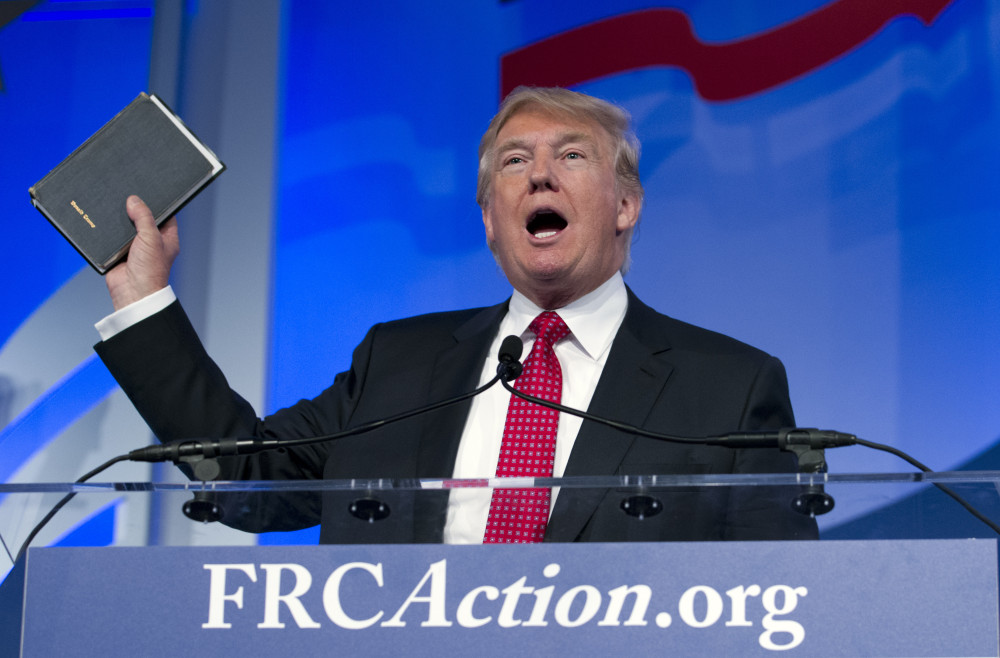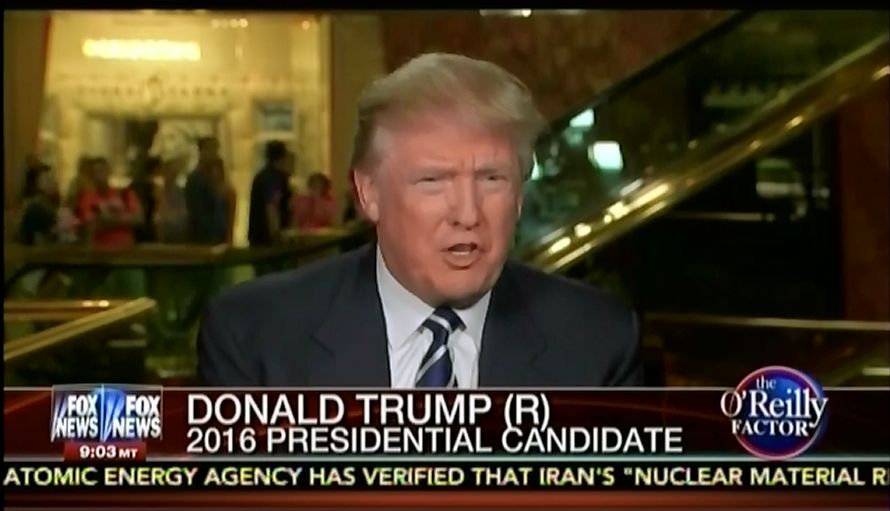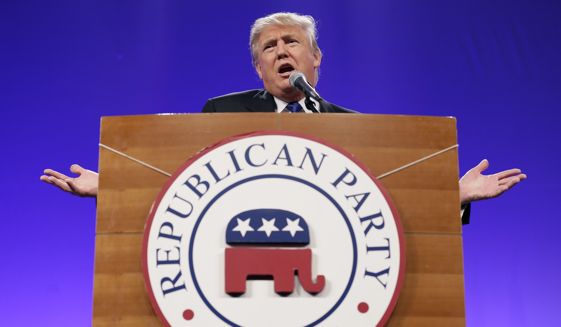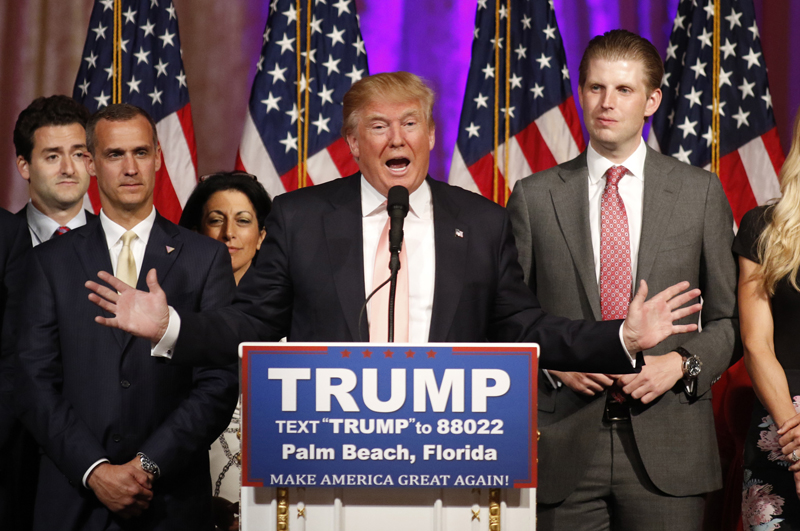Let’s stop debating whether Donald Trump is a bigot. He might not be racist, sexist or anti-Semitic. He might not hate Mexican-Americans or Muslims. Attempts to decipher his personal feelings are a distraction.
Defenders of Trump’s presidential campaign, most recently his son-in-law, New York Observer* publisher Jared Kushner, have repeatedly denied that the presumptive GOP nominee harbors any personal bigotry or intolerance.
“My father-in-law is an incredibly loving and tolerant person who has embraced my family and our Judaism since I began dating my wife,” wrote Kushner. “I know that Donald does not at all subscribe to any racist or anti-Semitic thinking. I have personally seen him embrace people of all racial and religious backgrounds.”
He concluded, “The suggestion that he may be intolerant is not reflective of the Donald Trump I know.”
While it is certainly heartening to know that Trump’s son-in-law does not believe he is a bigot, that fact is irrelevant.
Throughout his career, Trump has used bigotry in the same way he has used bankruptcy. It is a tool that he uses to achieve personal or, now, political profit.
In previous decades, to benefit his casino business, Trump ran ads claiming a Native American tribe’s “record of criminal activity is well documented.” When an allegedly mob-connected high roller demanded his casino floor be cleared of African-American dealers, Trump’s staff at the Taj Mahal readily complied. (For that bigoted act he was fined $200,000.)
Seeking publicity in the 1980s, he stoked racial tensions in New York, running ads following the arrest of five African-American teens in connection with a horrific rape in Central Park, calling for the reinstatement of the death penalty. The teens were later exonerated after spending years in prison. Yusef Salaam, one of the falsely accused, called Trump the “fire starter.”
Trump’s recent success in politics has been in large part thanks to his willingness to exploit racial mistrust for his own benefit. His political rise began when he attached himself to racist claims that President Obama might not have been born in the United States. While announcing his candidacy, Trump claimed that Mexicans migrants are “rapists.” Later, he declared that as president he would bar Muslims from entering the United States.
For decades Republicans have obeyed Lee Atwater’s maxim and sought to use ever more coded language to hide their electoral appeals to racism and bigotry. Trump’s campaign is unconventional in the way that he has broken with this pattern as well.
Political racism is no longer expressed through campaign ads showing an understated glance from a single African-American prisoner walking through the revolving door of a prison or a pair of white hands crumpling a piece of paper. Like his buildings, Trump’s bigotry knows no subtlety. His campaign’s attempts to stoke racial animus are loud, brash, plated in gold and stamped with his name.
Trump may or may not be a bigot, but his message is designed to advance bigotry by promoting it as the answer to any number of economic and social problems. This message has understandably attracted those who openly and proudly promote hate. It is no accident at this point that his campaign has repeatedly retweeted white supremacists’ accounts.
Hence a debate about whether or not Donald Trump feels racism or bigotry in his heart is immaterial to the larger question: Does he feel comfortable using hate and the hate of others to fuel his ambitions, without regard to the cost to individuals and our culture? The answer is clearly yes.
* Disclosure: On occasion I write for the New York Observer.







